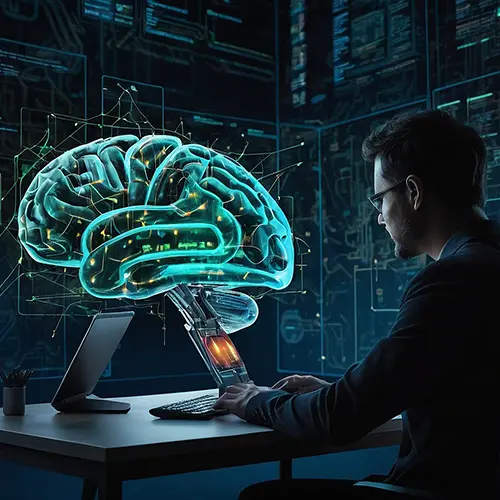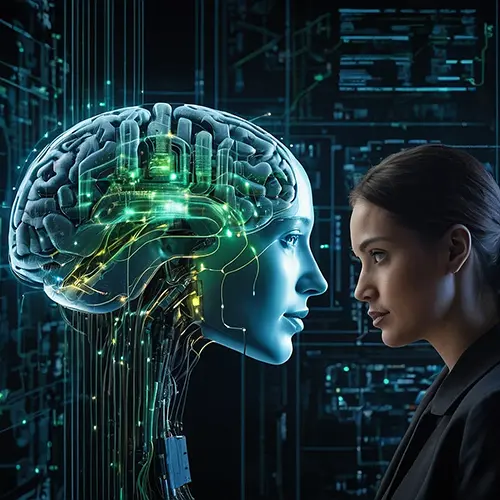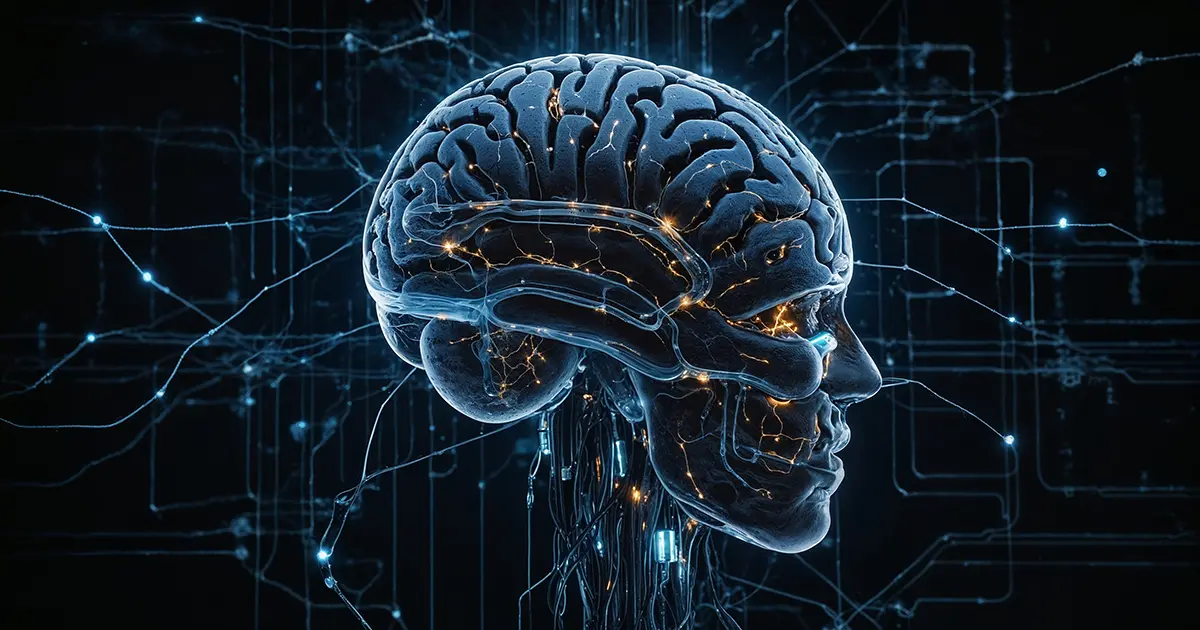Ethical Issues in AI: From Asimov’s Laws to Modern AI Challenges
Ethical issues in artificial intelligence are critical as we navigate a world increasingly impacted by technology. Understanding the origins of AI ethics, such as Asimov’s “Three Laws of Robotics” and how AI is trained today, helps ensure responsible and safe development. Let’s explore these fundamental aspects of AI ethics.
The ethical foundations of AI
The development of artificial intelligence (AI) is rapidly changing the world, touching nearly every aspect of our daily lives. With this immense potential comes great ethical responsibility. As we explore the ethical issues surrounding AI, we encounter some of the most intriguing ideas about how technology should serve humanity and what safeguards need to be in place. From concerns about privacy and bias to dilemmas about decision-making autonomy, understanding AI ethics means ensuring that our technology behaves responsibly and reflects the values we hold dear.
Rules for robots: The “Three Laws of robotics”
The conversation about AI ethics goes back decades, even before the birth of AI as we know it. One of the most famous contributions to this discussion was Isaac Asimov’s “Three Laws of Robotics,” introduced in his 1942 short story. These laws were intended as a set of guiding principles for robot behavior to protect humans from harm. The laws state that a robot must not injure a human or allow a human to be injured by inaction; must obey human commands unless they conflict with the first law; and must protect its own existence unless it conflicts with the first or second laws. These principles, while fictional, sparked deep discussions about how ethical frameworks can guide machines, laying the groundwork for ethical AI today.
The building blocks of AI: Training and values
To understand how AI works ethically, it’s important to understand how AI is trained from the ground up. The process begins with “machine learning,” in which AI systems are fed massive amounts of data and trained to recognize patterns. In the early stages, humans play a critical role in defining the rules and boundaries for these systems. The key is supervised learning, in which AI models are trained using labeled data sets, with humans explaining what various inputs represent and how the system should respond. Companies such as OpenAI, Google DeepMind, and IBM have been pioneers in developing ethical training practices for AI. OpenAI, for example, has developed an approach called “reinforcement learning from human feedback,” which uses human evaluators to teach AI which behaviors are desirable and which are not.


The initial training of an AI also includes the establishment of specific behavioral norms. These norms may include rules for mitigating bias, ensuring fairness, privacy standards, and prohibiting unethical practices such as deception or manipulation. The ultimate goal is to give AI systems a sense of human-like judgment that prevents harm and promotes fairness. Ethical AI relies heavily on these early guidelines to ensure that systems can make complex decisions responsibly.
The importance of ethical AI development
Ethical AI development is more than following a set of rules-it’s about ensuring that AI improves the quality of human life while protecting against potential risks. The idea of ethical AI asks: how do we build systems that are fair, transparent, and responsible? Human input is critical in defining what is “ethical. The development process should consider diverse perspectives, including gender, race, and socioeconomic background, to avoid biases that could lead to discriminatory AI behavior.
Key elements of AI ethics
Understanding AI ethics means breaking down key principles. Here are some core aspects that any responsible AI developer should consider:
These principles are intended to provide a foundation on which AI can be trusted and integrated into our societies without causing unintended harm.
AI and its ethical challenges today
AI faces many ethical challenges today. These challenges stem from the deep integration of AI into decision-making processes, from healthcare diagnostics to criminal justice systems. Bias is one of the most significant problems in AI, often due to training data that reflects societal biases. Left unchecked, these biases can lead to discriminatory outcomes. In addition, privacy is a major concern as AI increasingly relies on large data sets, some of which contain sensitive personal information. Ensuring that AI systems are transparent and their decisions explainable is also a major challenge, as the “black box” nature of some AI models makes it difficult to understand how decisions are made.
How AI ethics can benefit you
Ethical AI isn’t just for scientists or programmers-it’s for everyone. When AI systems are developed ethically, they make our lives easier and safer. For example, AI can help diagnose medical conditions more accurately, help people find information more effectively, and even ensure the safety of autonomous vehicles. By focusing on ethics, we’re working toward an AI future that respects individual rights and freedoms and delivers benefits without unnecessary risks.

Why this matters for beginners
Our mission on this site is to make the world of AI accessible to everyone, regardless of prior knowledge. Ethical considerations in AI are an important aspect of developing and using the technology, and help ensure that the systems we build are beneficial to all. Whether you’re new to AI or just curious, we’re here to guide you. From understanding the basics to diving into advanced applications, even the most complex concepts can be explained in simple terms. With our materials, you’ll find yourself navigating the world of AI more confidently and safely.
Conclusion: Expanding your knowledge
Ethical AI is a cornerstone of safe and responsible AI development. By learning more about these issues, you will have the knowledge you need to understand how these systems work and how they will impact our lives. If you’re interested in learning more, check out our other sections – whether you want to learn the basics of AI, explore how it’s being used in everyday tasks, or discover practical tips and hacks, there’s always more to explore on our website.


















